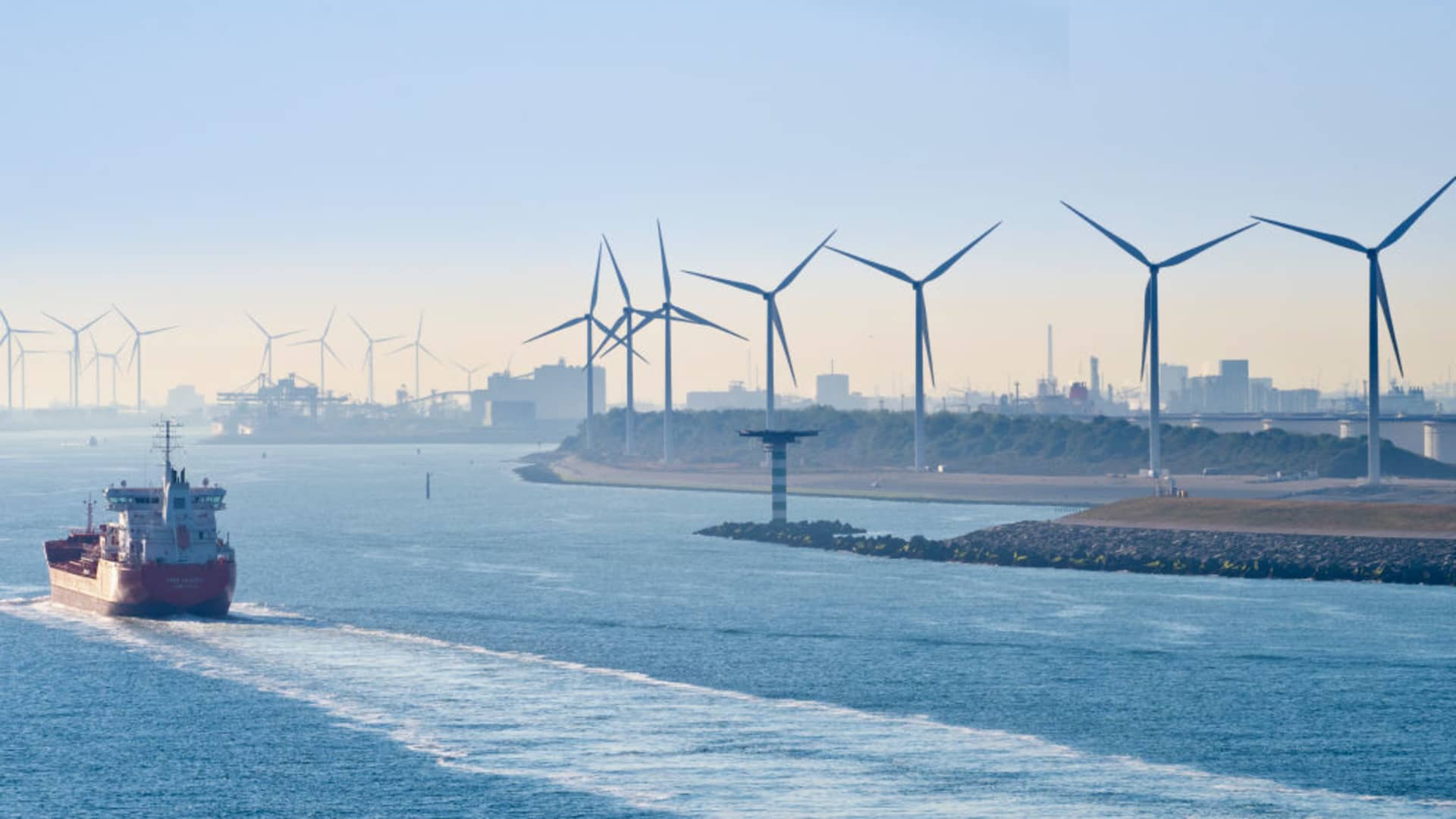Countries at the meeting of the United Nations’ International Maritime Organization in London signed a deal for shipping emissions to reach net zero “by or around” 2050.
Ucg | Universal Images Group | Getty Images
Two weeks of talks at the United Nations shipping agency concluded in London on Friday, with a clear majority of countries emerging in favor of introducing the world’s first-ever global emissions levy.
The International Maritime Organization held its latest round of negotiations to discuss how to move forward on the climate regulation of the shipping industry, which accounts for around 3% of global carbon emissions.
Thirty-four countries from high- and low-income states expressed backing a universal greenhouse gas price, reflecting a significant upswing in support from the last round of talks in 2023.
Campaigners attributed building momentum for the policy to support from Caribbean Island states and said it now appeared likely that the measure would be adopted by the IMO next year.
The UN is on the edge of adopting the world’s first-ever global emissions price, but the policy will only be as successful as countries make it to be.
Sandra Chiri
Shipping emissions international outreach manager at the Ocean Conservancy
The latest round of talks marked the first convention of the IMO since maritime nations agreed on a new greenhouse gas strategy in July last year. The revised policy, backed by 175 countries, targets to slash shipping emissions by 30% by 2030, by at least 70% by 2040 and to get to net zero by the middle of the century.
As part of that agreement, the IMO agreed to implement some form of an emissions price in 2025, seeking to help close the price gap between fossil fuels and green energy and to use the revenue generated to fund an equitable transition.
However, there are other proposals to incorporate a potential levy as part of other measures. At least 14 countries continue to favor this approach.
“The UN is on the edge of adopting the world’s first-ever global emissions price, but the policy will only be as successful as countries make it to be,” said Sandra Chiri, shipping emissions international outreach manager at the Ocean Conservancy, a U.S.-based advocacy group.
“The March talks at the IMO gave us hope that a clear majority of countries — those in the Caribbean, the Pacific, Africa, but also the EU and Canada — have seen the huge opportunity of pricing shipping emissions for the industry’s clean transition and for making sure that all developing countries are part of and benefit from it.”
Chiri said in a statement that it was “regrettable that a small but persistent minority” sought to water down the proposal.
Decarbonizing shipping
The shipping sector, which transports more than 90% of global trade, is regarded as one of the hardest industries to decarbonize, partly owing to the vast amounts of dirty fossil fuels the ships burn each year.
Some of the biggest proponents of a global greenhouse gas emissions charge on the shipping industry include Pacific Island states, such as Fiji, the Marshall Islands and Vanuatu, and Caribbean Island states, including Barbados, Jamaica and Grenada.
A proposal put forward by Belize and some Pacific Island states at the talks called for a levy of $150 per ton of carbon, which campaigners say is the “most ambitious proposal on the table.”
Other proposals include a push to combine a price on shipping emissions with an international emissions standard for maritime fuel.
Gregor Fischer | Getty Images News | Getty Images
“This week’s negotiations at the International Maritime Organization were successful in advancing talks to climate-proof global trade,” said Panos Spiliotis, EU transport senior manager for global shipping at the Environmental Defense Fund.
“With growing support for a universal greenhouse gas price, country delegates must now develop the right policy details to incentivize shipping decarbonization.”
Delegates at the IMO are next expected to hold talks in the fall.




















Discussion about this post